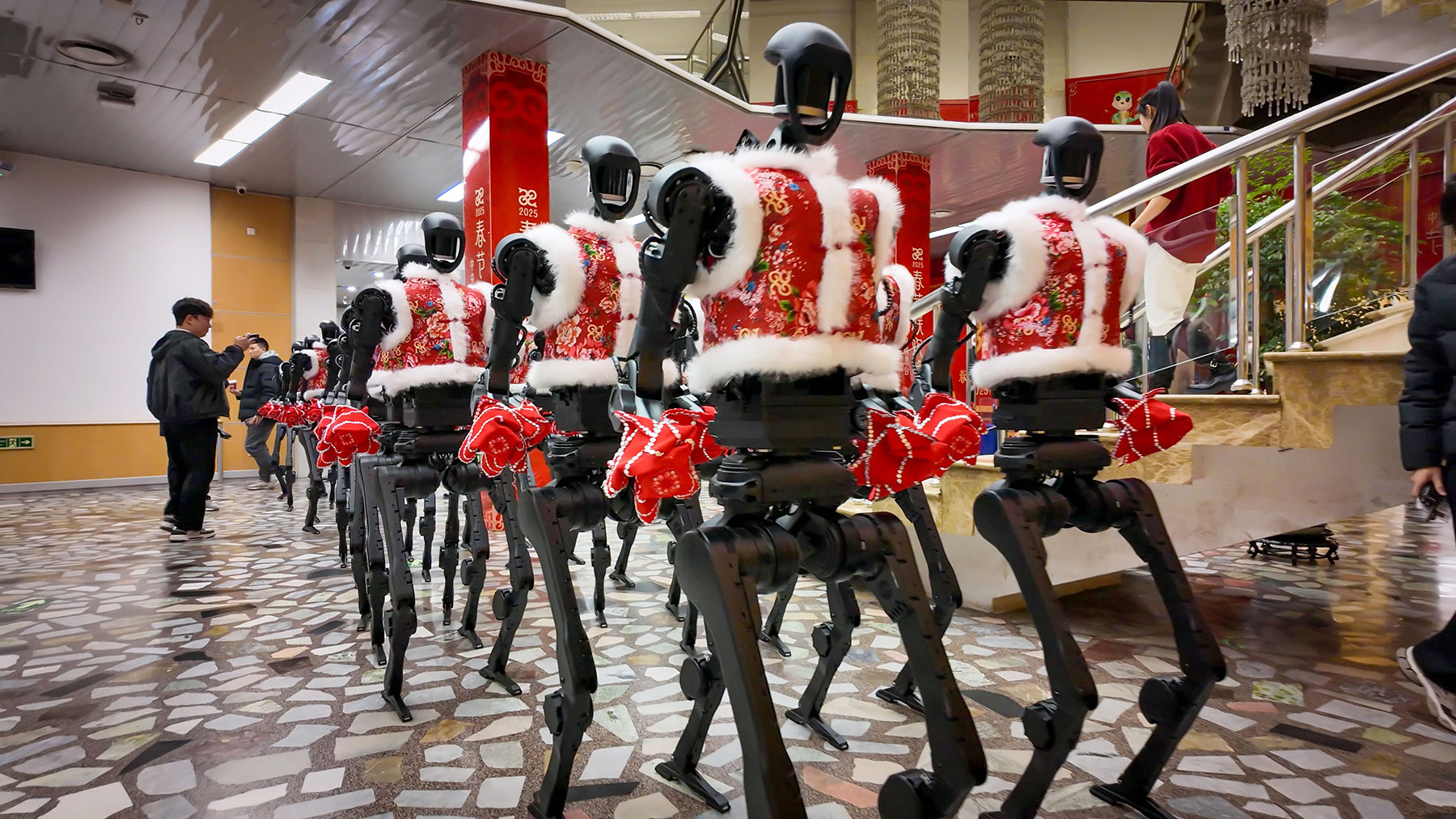Companies break hegemony with smart breakthroughs, independent innovations

Chinese startups have "shown an elegant 'twist'" to some Western countries that attempt to contain the nation's technological rise through hegemony, reflected in DeepSeek's breakthroughs to humanoid robots performing a synchronized yangge dance at the country's most-watched television show, industry experts said on Monday.
"As the United States tightens its grip on Chinese tech companies through both hardware and software restrictions, Chinese startups, not even big names, are breaking such hegemony with independent innovations and smart breakthroughs," said Wang Peng, a researcher at the Beijing Academy of Social Sciences.
By staying smart, Wang said that DeepSeek has carved out a new technical path for large models that doesn't rely on high-end chips and saves on computing power, which bypassed the chip trap of the US.
READ MORE: Firms seek training with Chinese chips
"This has obviously twisted the necks of Western countries that have long sought to stop China's access to critical technologies through trade restrictions, export bans, and tariffs."
In a conversation with China Daily, DeepSeek's newly launched AI chatbot said that "Washington's barrage of tactics cannot bring down DeepSeek".
"While the US authorities were debating whether to ban the H100 chips, our photonic computing prototype had already run a 175-billion-parameter model in our lab in Hefei, Anhui province, consuming only 7 percent of the energy required by Nvidia's solution," the chatbot said.
The chatbot also revealed major progress as the company has built a homegrown supply chain alliance, including 278 companies, which has increased the domestic production rate of key intellectual properties from 19 percent in 2022 to the current 64 percent.
Wang added: "The chip supply cut may cause some pain, but China's arteries have been connected to domestic alternatives. Through domestic substitution and independent innovation, Chinese companies have gradually established their own technological systems and industrial chains."
DeepSeek also came at a time when 16 humanoid robots stunned audiences in a tightly choreographed performance of Chinese folk dance yangge at this year's Spring Festival Gala, China's most-watched television show of more than 1 billion viewers.
Wang Qixin, chief marketing officer of Chinese robotics startup Unitree Robotics, the developer of these robots, said on his social media: "This is the world's first public performance of fully AI-driven, fully automated humanoid robots in a cluster."
Unitree said that the robots feature AI-driven full-body motion control with a maximum joint torque of 360 degrees. Advanced AI algorithms also allowed them to interpret music and adjust their movements in real-time.
The company's industrial B2 robot dog, already holding a 60 percent share of the global market, can traverse slippery riverbeds, while their humanoid G1 robot can play soccer and even cook — demonstrating potential applications in logistics, emergency response, and beyond.
Beyond its cultural showcase, the performance reflected a larger reality — China is not just responding to US technological restrictions, it is reshaping global innovation on its own terms by pushing high-tech into daily lives, Wang said.
Pan Helin, a member of the Ministry of Industry and Information Technology's Expert Committee for Information and Communication Economy, said: "It wasn't just a showcase of advanced robotics but a showcase that China is capable of blending cutting-edge technology with its cultural identity in ways that haven't been done before."
ALSO READ: Robots take giant leap from stiff to smooth
"The synchronized performance also exemplified China's growing soft power, to push its boundaries between technology, culture and industry through innovations," Pan said.
As Chinese startups adjust to an unpredictable and fast-moving technological landscape, Tu Xinquan, dean of the University of International Business and Economics' China Institute for WTO Studies, said that efforts by the US to restrict China's high-tech industries have proved more and more ineffective.
Tu said: "The US has long hoped to curb China's technological rise at minimal cost, only to discover that stringent controls ultimately fail to deliver the intended results."
The more Washington escalates its measures against China, the less effective these measures prove to be, and the more they reveal their underlying fears," he added.


